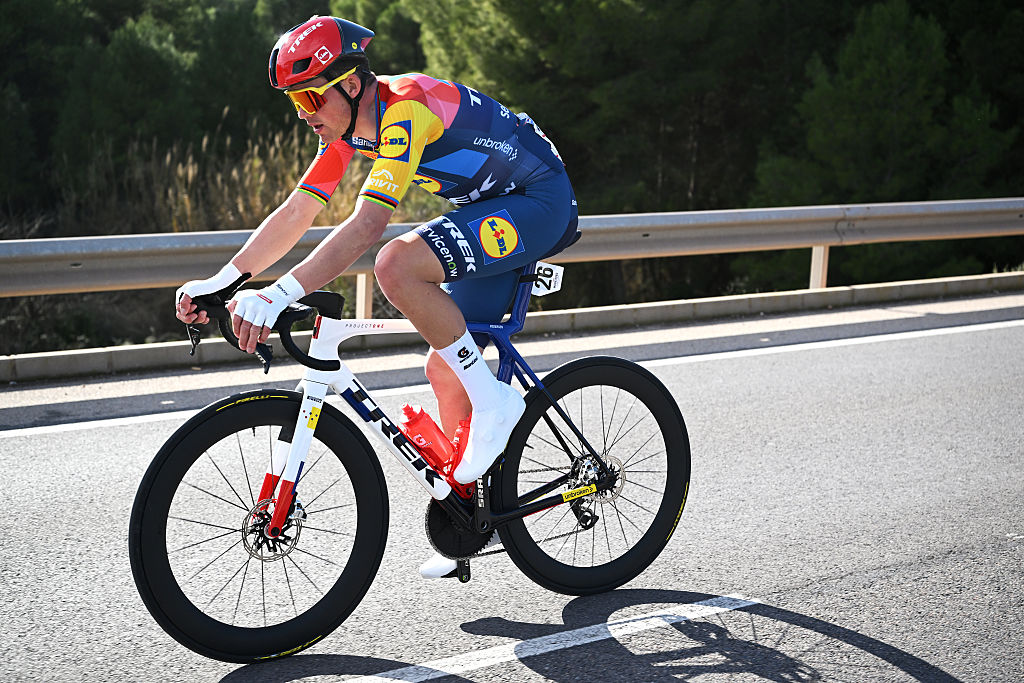Simon Yates: There are things to look at, improve, and work on
Briton looks back on successful 2018 season with Mitchelton-Scott
The latest race content, interviews, features, reviews and expert buying guides, direct to your inbox!
You are now subscribed
Your newsletter sign-up was successful
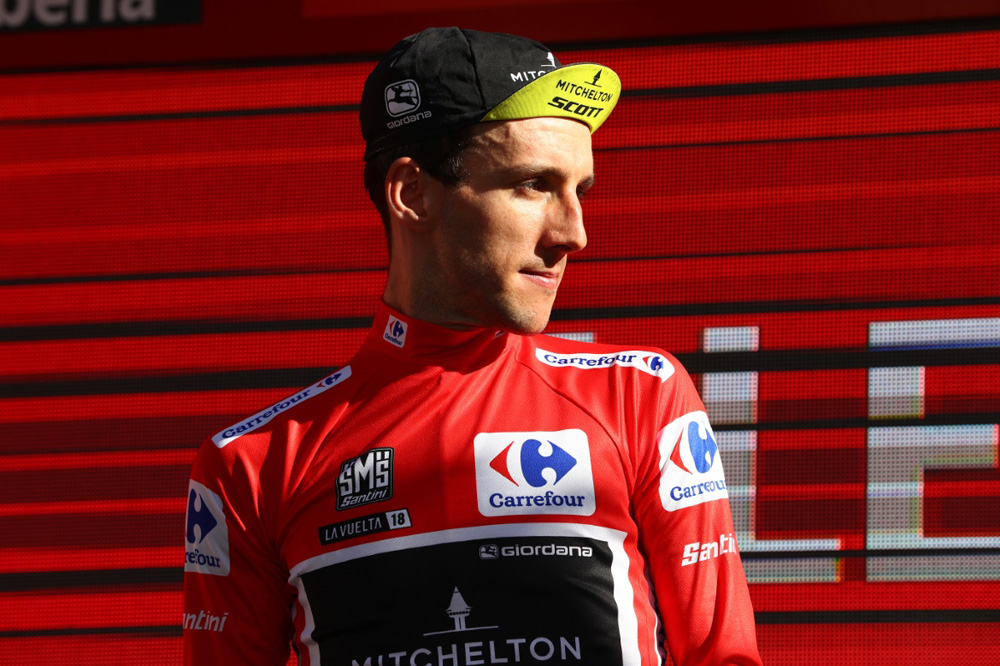
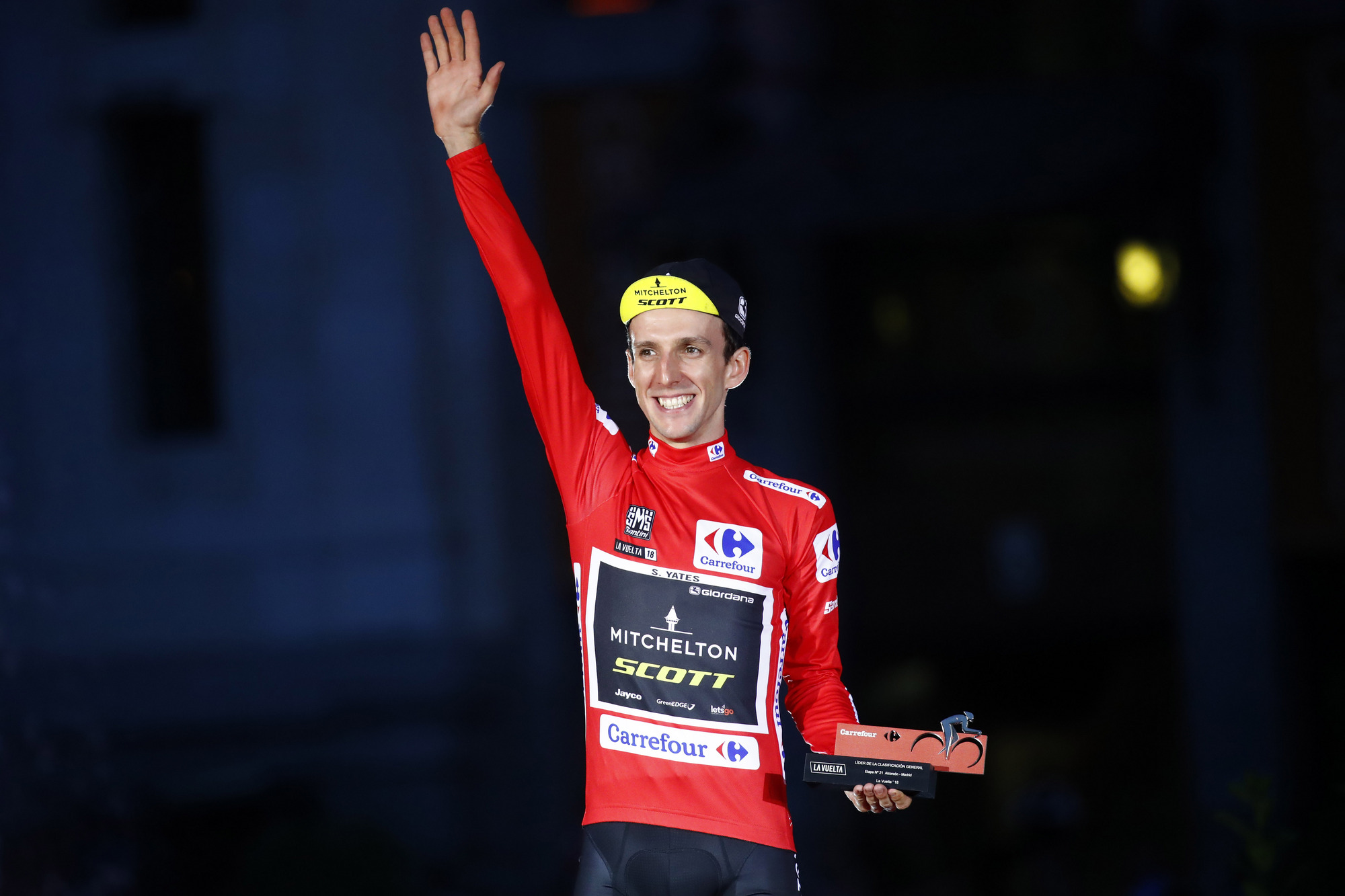
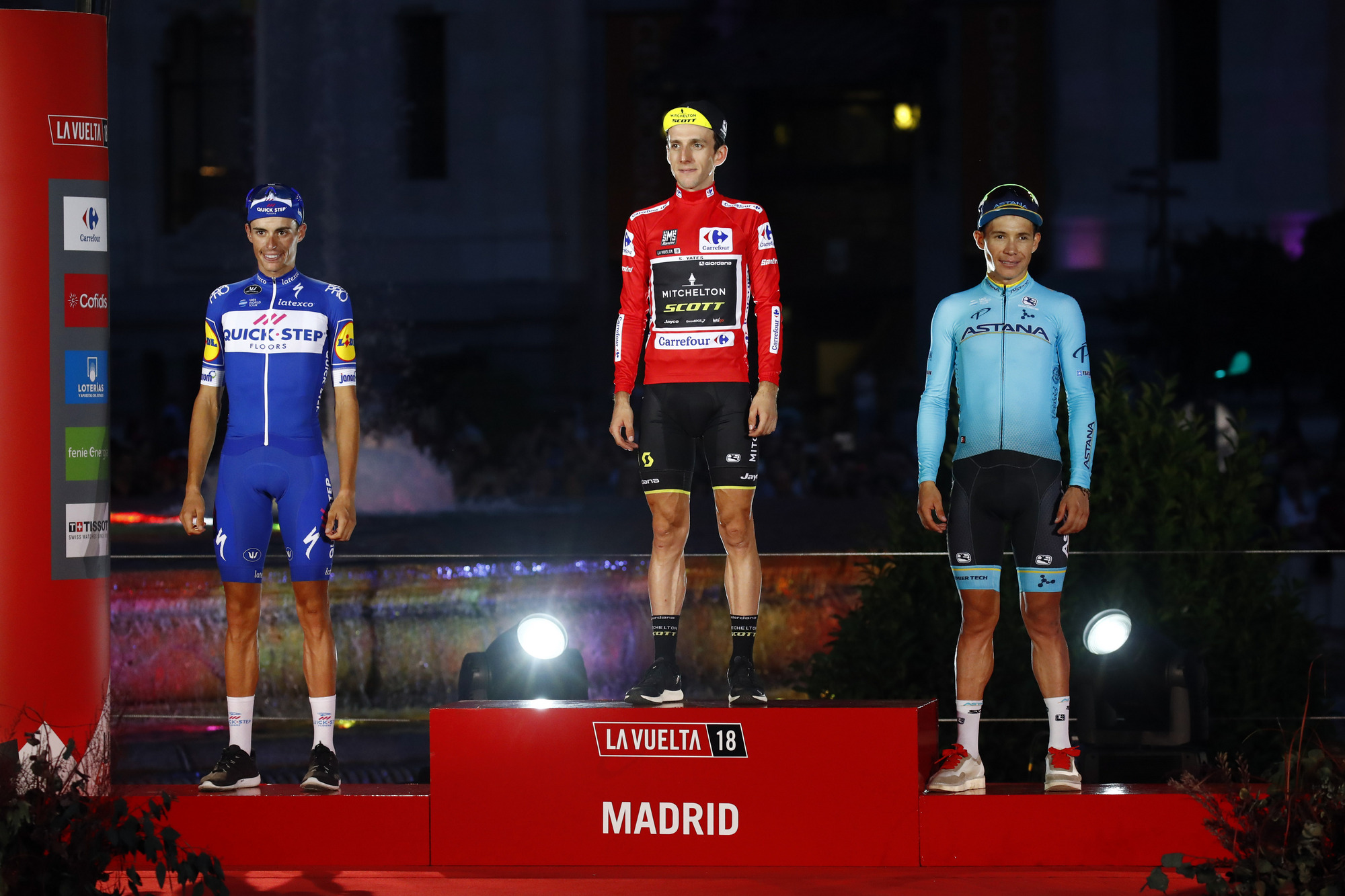
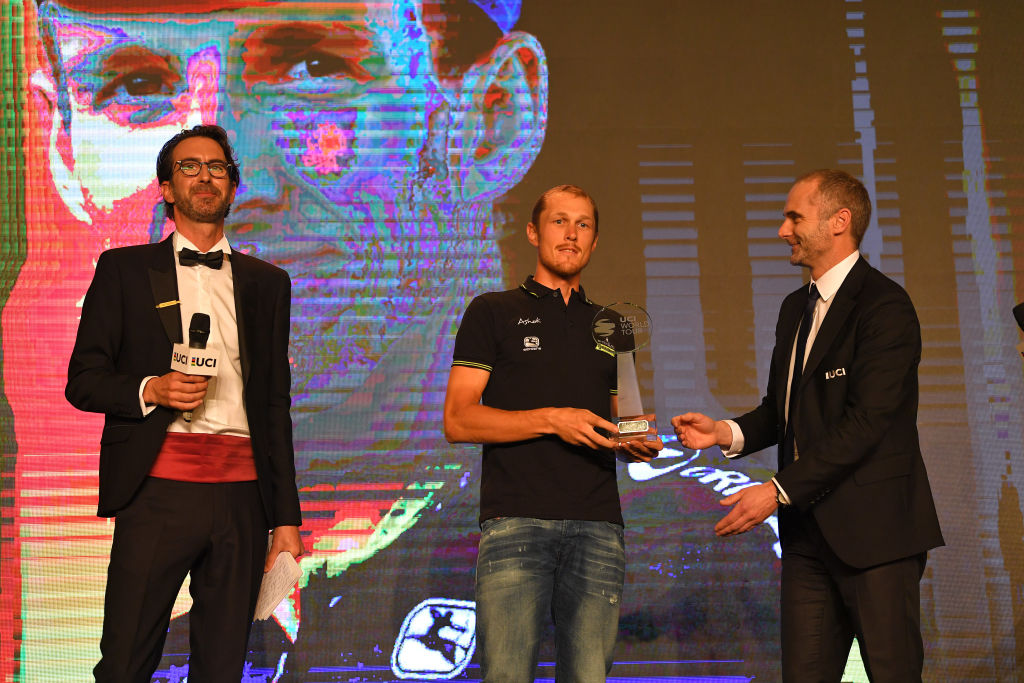
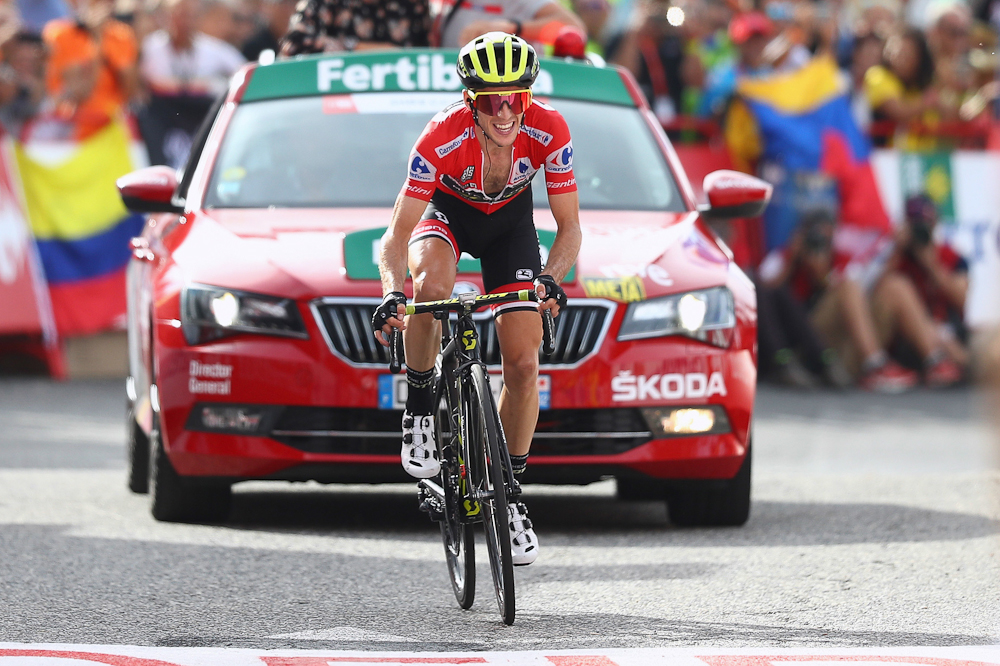
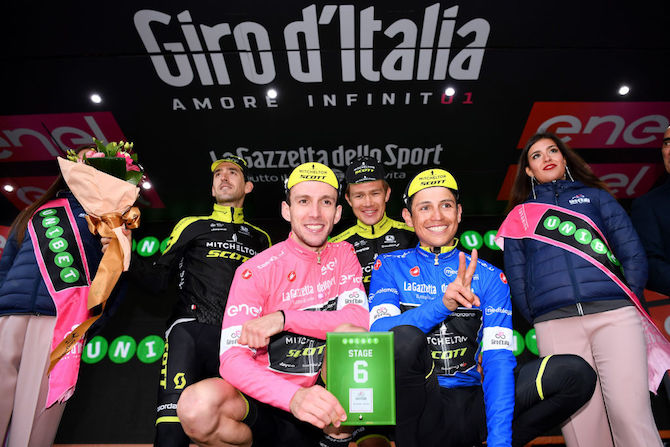
Despite his victory at the Vuelta a España, Simon Yates says that there is still plenty he and his Mitchelton-Scott team can improve upon for next season. Yates' Vuelta win was the Australian team's first Grand Tour success but the 26-year-old Briton says their performance was not pitch perfect.
Giro d'Italia: I'll come back stronger, says Simon Yates
Vuelta a Espana in the bag, Simon Yates hints at Giro d'Italia redemption
A sense of bewilderment as Simon Yates is crowned King of Spain
Simon Yates to be crowned WorldTour champion ahead of Peter Sagan
Simon Yates and Annemiek van Vleuten secure 2018 WorldTour titles
"We as a team have been building towards the Grand Tours for a long time now, since I’ve been a professional. I think we need to continue with that progress," Yates told Cyclingnews in an exclusive interview.
"Even at the Vuelta, we made a lot of mistakes that we can improve on; it wasn’t a flawless race. There are things to look at and improve and work on. We just have to go from there. Obviously, we still want to go to Grand Tours in the future. Which one I go to, I don’t know yet. I have to see the parcours and then go from there."
Last week, Yates was crowned the overall winner of the UCI WorldTour, beating Peter Sagan by a slim 80 points. Annemiek van Vleuten made it double glory for the Mitchelton-Scott team with her victory in the women’s WorldTour. The Vuelta played a large part in Yates' success, adding to his win at the Tour de Pologne, a podium finish at Paris-Nice, fourth at the Volta a Catalunya and three stage wins at the Giro d’Italia.
Even before his win in Spain, this season had been one of the most successful for the 26-year-old British rider, something he puts down to being older and wiser after six seasons as a professional rider.
"I think it is exactly that, being a little bit older and knowing better how to race, where to save energy. I know the races more now. A lot of the races do the same parcours and they have the same sort of rhythm to the races," he said.
"It’s been a successful year but, in some parts, it’s also been a bad year. I’ve had some close calls and a few second places, it depends on how you look at it really. Obviously, I managed to pull off the Vuelta at the end of the year so that really cancels it all out really."
The latest race content, interviews, features, reviews and expert buying guides, direct to your inbox!
Yates looked like he might win his first Grand Tour much earlier in the year, when he spent almost two weeks in the leader’s pink jersey at the Giro d'Italia and also won three stages. Victory was within his grasp until he cracked dramatically on the Colle delle Finestre just two days from Rome, when Chris Froome went on the attack to set up his overall success. It was still a successful Giro for Yates, but coming so close to overall victory was a tough blow to take.
His Vuelta a España victory makes it a little easier to now look back on the Giro d'Italia with fondness.
"If you said to be at the start that I would win three stages and hold the leader’s jersey for however many days that I held it for, I would have signed for that at the start," Yates said.
"I’d never won a stage of the Giro before, I’d never worn a leader’s jersey at a Grand Tour before - that would have been a success but because I’d been going so well and I’d been feeling good, it felt like I was so close, so it was devastating.
"I wouldn’t say I came to the Vuelta with an eye to avenge that but now that I have pulled it off I do look back on it with fond memories. We as a team had a great race, we won five stages [Mikel Nieve and Esteban Chaves won a stage each -ed] and it was unbelievable."
Learning from the Giro
The Giro d’Italia took a lot out of Yates, who spent his off-season and the entire first part of his 2018 season preparing for the Italian race. He spent several days ill in bed in the immediate aftermath of the race and it would be a whole month before he touched his bike again.
"No bike at all. It was very easy, I’m very good at doing nothing," Yates told Cyclingnews with a laugh.
"It was fine. It was both from a physical point of view but also a mental point of view. I put so much work into the Giro, that was what my whole off-season and the first part of the year – we’re talking seven months of work all for the Giro. You can’t keep going, I’m not a robot. I needed to take some off-time and that was the perfect time to do it."
The break from racing gave Yates plenty of time to assess what had exactly gone wrong at the end. It also allowed him to head to the Vuelta a España with fresh legs and a fresh mind. With goals immediately after the Vuelta and his experiences in May, Yates was cautious about going too hard too early. The team also played a safer game, keeping Yates’ twin brother Adam off the front until the final weekend.
"The training and preparation I had at the Vuelta was very different to what I had at the Giro. Obviously, I had this break and then a different build-up, and I also had an eye on the World Championships," he explained.
"I arrived at the Giro on day one ready to go. At the Vuelta, I really wanted to build into the race because we knew that the final week was so filthy and then I needed to recover and come back up for the World Championships. The preparation was very different but I think it worked quite well - I mean, I pulled it off."
Whether or not his disappointment at the Giro d’Italia was a key factor in winning the Vuelta, Yates can’t say, but the lessons he learned were certainly invaluable.
"It’s very hard to say because I always believe in myself 100 per cent," he said.
"Even if I’d done nothing at the Giro, I would have still gone to the Vuelta and tried to win. I really don’t know. Obviously, I learned a lot from the Giro and we as a team learned a lot. I think that was the main thing."
Born in Ireland to a cycling family and later moved to the Isle of Man, so there was no surprise when I got into the sport. Studied sports journalism at university before going on to do a Masters in sports broadcast. After university I spent three months interning at Eurosport, where I covered the Tour de France. In 2012 I started at Procycling Magazine, before becoming the deputy editor of Procycling Week. I then joined Cyclingnews, in December 2013.
